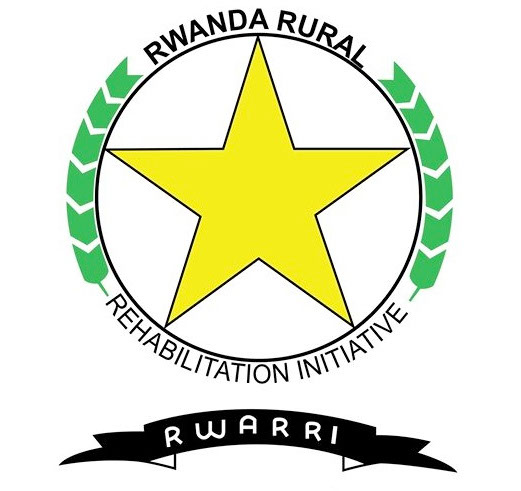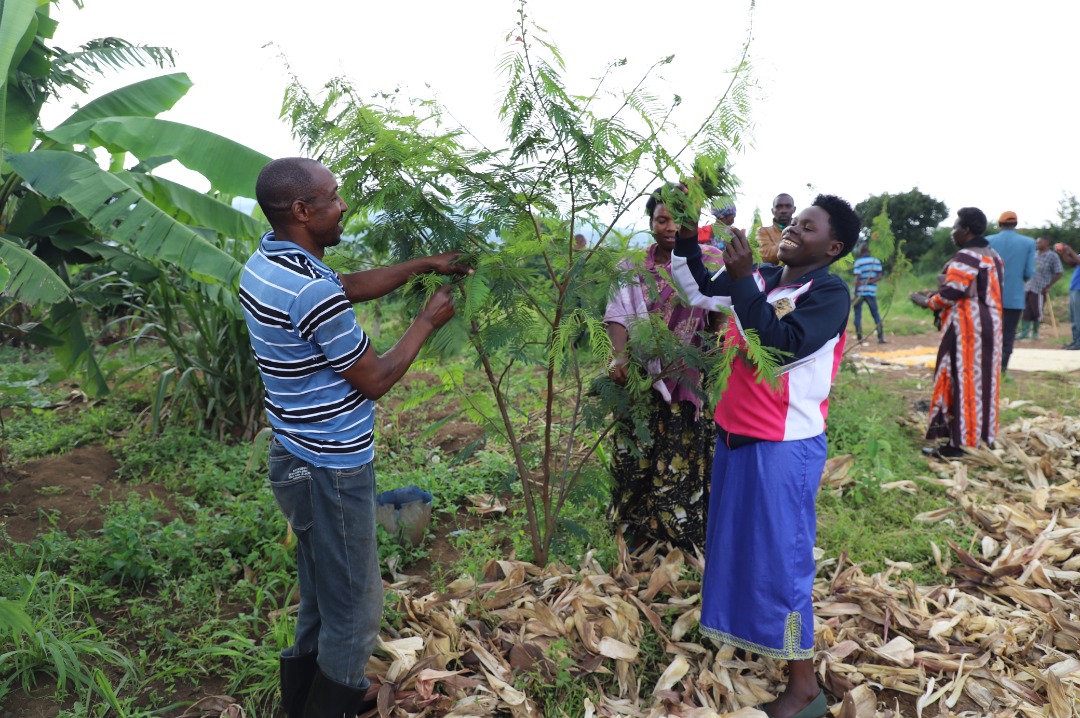Calliandra callothyrsus, one of the agroforestry species introduced in the Rwimiyaga sector of
Nyagatare district, is progressively earning the farmers’ attention. In contrast, the latter resisted
planting them on their land or farms a year ago.
As per Nyaminani Cyriaque, a lead farmer in Rwimiyaga, there is a high potential for using
calliandra callothyrsus as protein-rich fodder trees for cows as well as goats, sheep, rabbits, and
pigs. “Calliandra is also important for soil conservation, air nitrogen fixation, controlling soil
erosion, use as firewood, stakes, bee forage, milk increase in the livestock, and boundary
marking,” he added.
Nyaminani regrets how during the 2021 tree planting season, some farmers resisted receiving
and planting calliandra on their land. “They did it due to ignorance, but now, calliandra is
showing its high importance to farmers’’. We had the wrong information and flawed perceptions
on the benefits that farmers would get from calliandra; he mentioned and argued that today they
positively changed their mind vis-à-vis the calliandra adoption.
Mukarugwiza Angelique, another lead farmer in Rwimiyaga, on behalf of farmers, expressed her
wish to have more calliandra callothyrsus seedlings to plant to satisfy the need for continuous
fodder supply for livestock, among many other reasons. “Today, calliandra has gained farmers’
respect to the extent that everyone would like to plant more of them,” she revealed.
Ndungutse John, also a lead farmer in Rwimiyaga, suggested having training on calliandra
seedlings production to satisfy their demand at the community level. “We no longer wish to have
calliandra seedlings from development partners. Once trained, we are ready to produce and plant
them”, he assured.
In peer-to-peer learning sessions conducted recently in Rwimiyaga and Nyamugari sectors of
Nyagatare and Kirehe districts, respectively, 12 local leaders and 59 lead farmers learned from
one another’s experiences, best practices and skills to increase lead farmers’ competencies and
promote their sense of responsibilities under the Alliance for Restoration of Forest Landscapes
and Ecosystems in Africa (AREECA). AREECA is funded by the International Climate
Initiative (IKI) of the German Ministry of the Environment through the International Union of
Conservation of Nature (IUCN) and it is implemented in Rwanda in partnership with Rwanda
Forests Authority and Rwanda Rural Rehabilitation Initiative in Nyagatare and Kirehe districts
of the Eastern Province.



